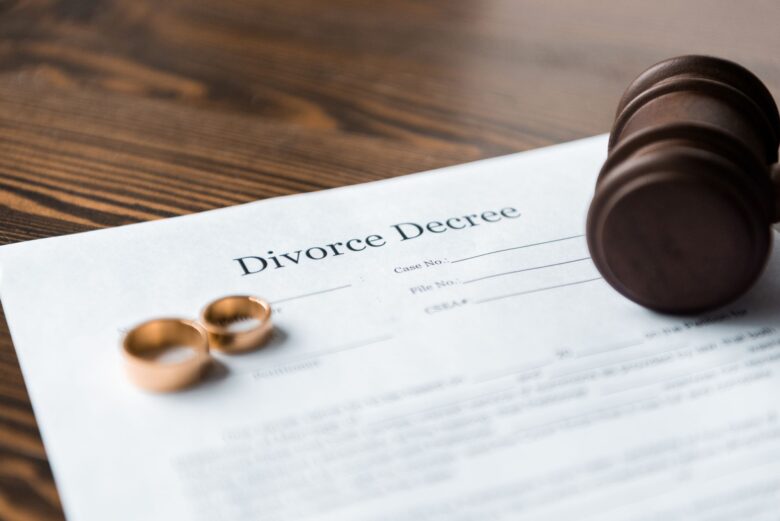Subpoenas are powerful legal tools that enable parties in a divorce trial to gather evidence, such as phone records, which may significantly impact the case outcome. During the discovery phase, both parties are required to exchange information and documentation that supports their respective claims.
With a subpoena, a party may uncover evidence of infidelity, financial misconduct, or other relevant information that could affect asset division, child custody, or spousal support.
In this article, we will explore the various aspects of obtaining phone records in divorce cases, delving into the importance of phone records, the types of records that can be obtained, and the subpoena process.
Contents
- Why Are Phone Records Important in Divorce Cases?
- What Types of Phone Records Can Be Obtained?
- When Is a Court Order Required to Access Phone Records?
- How Can a Spouse’s Consent Impact the Process of Obtaining Phone Records?
- How Can Phone Records Be Used as Evidence in Divorce Proceedings?
- What Are the Potential Consequences of Unauthorized Access to Phone Records?
Why Are Phone Records Important in Divorce Cases?

Source: melonelawpc.com
In many legal cases, the crux of the matter often revolves around communication or the lack thereof. Subpoena phone records of divorce are significant because they provide insight into the communication between spouses, which can help to determine matters such as fault or no-fault divorces, child custody, and support payments.
Cell phone records can provide valuable insights into the nature and frequency of communication between spouses. These records can help establish behavior patterns, such as frequent arguments, avoidance, or even attempts at reconciliation. In some instances, the content of text messages or phone calls can reveal critical information about the parties’ intentions or state of mind. For instance, repeated calls or messages to an unknown individual might suggest an extramarital affair. Likewise, a series of text messages may document a pattern of verbal or emotional abuse between spouses.
In cases involving financial misconduct, a phone record can help uncover hidden assets or attempts to dissipate marital assets. For example, cell phones may have records of calls or texts to offshore accounts or other business records, which could suggest that one spouse is hiding money from the other. In some cases, a spouse’s cell phone records can also show communication with other individuals who may be involved in fraudulent activities.
What Types of Phone Records Can Be Obtained?
In a divorce case, a lawyer may be able to subpoena cell phone companies for certain types of information, but accessing the actual content of text messages or call conversations may be more difficult.
Typically, cell phone companies do not store the content of text messages or call conversations for extended periods of time. They may retain call logs, text message metadata, and billing records. These types of information can sometimes be subpoenaed in a divorce case if they are deemed relevant to the proceedings.
Call Logs
These logs provide detailed information about the incoming and outgoing calls made and received on a cell phone. They typically include the date, time, duration, and phone numbers involved in each call. Call history can be instrumental in establishing communication patterns between spouses and identifying interactions with potentially relevant third parties.
Text Messages
Subpoena text messages and multimedia messages (MMS) are also frequently sought after in divorce cases. A text message can include the text itself and any images, videos, or audio files that may have been shared. In some situations, the content of these messages can help prove or disprove one spouse’s allegations against the other.
Voicemails
Voicemails and saved audio recordings can be another valuable source of information in divorce cases. These records may contain messages left by one spouse for the other or conversations between spouses that were recorded and saved. Voicemails and recordings can provide insight into the emotional state of the parties, the nature of their relationship, and any potential issues that may have contributed to the marriage breakdown.
App Usage
In today’s digital age, app usage and social media activity can also be relevant in divorce proceedings. Cell phone companies may have records of the apps installed on the phone and the usage patterns associated with those apps. Additionally, social media accounts can provide information about a spouse’s online activities, including posts, messages, and interactions with others. And it may reveal extravagant spending, undisclosed relationships, or questionable behavior that could be relevant to the divorce case.
How Does the Subpoena Process Work for Obtaining Phone Records?

Source: serveindex.com
In order to obtain information through a subpoena, the lawyers representing the parties involved should evaluate the case’s circumstances and determine if phone records could potentially provide important evidence. This could include examining communication patterns between spouses, searching for hidden assets, or establishing parental fitness for custody arrangements.
A subpoena is a legal order demanding that an individual or entity, such as a phone company, produce documents or other evidence. To draft a subpoena for phone records, the divorce lawyer must include specific details about the information being sought, such as phone numbers, date ranges, and types of records. The subpoena should also clearly state the deadline for producing the requested records.
The divorce attorney must ensure that the subpoena is narrowly tailored to request only the necessary and relevant information for the case while respecting the privacy rights of the parties involved. Additionally, the attorney should be prepared to address any concerns the phone company or other record holder may have about releasing the information.
Once a blank subpoena form is filled out, it must be properly served on the phone company or other entity holding the records. This typically involves delivering the subpoena in person, by mail, or through a professional process server. The recipient must then comply with the subpoena by providing the requested records within the specified time frame.
When Is a Court Order Required to Access Phone Records?
A subpoena is a legal request issued by an attorney or a party to the case, compelling an individual or entity to produce documents or give testimony. In contrast, a court order is a legally binding directive issued by a judge that requires parties’ compliance. While subpoenas can often be used to obtain phone records, there are certain circumstances in which a court order may be necessary to access this information.
A court order may be required to access phone records in situations such as:
- Records containing highly sensitive information: If the phone records being sought contain sensitive personal information, such as medical or financial data, a court may require a court order to protect privacy rights.
- Objections to the subpoena: If the subpoenaed party raises valid objections based on privacy concerns, relevance, or other grounds, a court may require a court order to resolve the dispute and determine whether the records should be released.
- Records held by third parties: In some cases, phone records may be held by third parties who are not directly involved in the divorce proceeding. A court order may be necessary to compel these third parties to produce the records if they refuse to do so voluntarily or if they raise objections to the subpoena.
To obtain a court order for phone records, an attorney must first file a motion with the court, requesting that the judge issue the order. This motion should include the following:
- A detailed explanation of why the phone records are relevant to the divorce case and the specific information being sought.
- Any supporting documentation, such as affidavits or other evidence that demonstrates the need for the records.
- A proposed order for the judge to review and sign that outlining the specific records to be produced and the timeline for compliance.
The opposing party will have an opportunity to respond to the motion, and a hearing may be scheduled to allow both parties to present their arguments. The judge will then decide whether to grant the motion and issue the court order.
How Can a Spouse’s Consent Impact the Process of Obtaining Phone Records?

Source: techwalla.com
In some divorce cases, a spouse may voluntarily disclose their phone records without the need for a subpoena or court order. This often occurs when both parties agree that the records are relevant and necessary for the case or when one spouse believes that sharing their phone records may help resolve the issues at hand more efficiently. Voluntary disclosure can significantly simplify the process of obtaining phone records, as it eliminates the need for legal intervention and potential disputes over privacy concerns.
A spouse’s consent can also impact the legal process of obtaining phone records. Consent can demonstrate to the court that the release of the records does not infringe on privacy rights and that the parties involved acknowledge the relevance of the information to the case. However, it’s essential to ensure that the consent is genuine and not the result of coercion or pressure.
Courts will be vigilant in ensuring that consent is given freely and without any undue influence to maintain fairness in the divorce proceedings.
It’s important to note that a spouse who initially consents to the release of their phone records may later revoke their consent. This could occur if the spouse changes their mind about the relevance or necessity of the records or if they become concerned about potential privacy violations. If consent is revoked, the spouse seeking the phone records may need to pursue alternative legal avenues to access the information, such as obtaining a subpoena or court order.
How Can Phone Records Be Used as Evidence in Divorce Proceedings?
Before phone records can be used as evidence in divorce proceedings, they must be deemed admissible by the court. This means the records must be relevant to the case, obtained through
proper legal channels, and authenticated. The authentication process typically involves having a representative from the phone company or a digital forensics expert verify the accuracy and reliability of the records. Once the court determines that the phone records meet the necessary criteria for admissibility, they can be used as evidence in the case.
When presenting phone records as evidence in court, it is essential to follow best practices and strategies to ensure that the records have the desired impact on the case. These may include:
- Organizing the records: Phone records can be extensive and may include call logs, text messages, and other data. To effectively present this information, organize the records in a clear and concise manner, highlighting the most relevant and compelling pieces of evidence.
- Demonstrating relevance: To persuade the court of the importance of phone records, attorneys must effectively explain how the records are relevant to the case. This may involve showing a connection between the phone records and issues such as infidelity, financial misconduct, or custody disputes.
- Utilizing expert witnesses: In some cases, it may be necessary to call upon digital forensics experts or representatives from the phone company to provide testimony regarding the accuracy, reliability, and interpretation of the phone records.
- Addressing objections: Opposing counsel may raise objections to the admissibility or relevance of the phone records. Attorneys must be prepared to address these objections and defend the use of the records as evidence.

Source: mckinleyirvin.com
Unauthorized access to phone records can result in severe legal penalties, as it may constitute a violation of privacy rights, wiretapping laws, and electronic surveillance laws. Depending on the jurisdiction and the nature of the violation, penalties for unlawfully obtaining phone records can range from fines to imprisonment. Additionally, the individual who accessed the records may face civil lawsuits from the affected party for invasion of privacy or other related claims.
If phone records are illegally obtained, they will likely be deemed inadmissible as evidence in divorce proceedings. This means that any information gleaned from these records cannot be used to support one spouse’s claims or refute the other spouse’s assertions. The exclusion of this evidence can significantly affect the outcome of the case, as it may leave crucial issues unresolved or weaken one party’s position.
Moreover, if the court discovers that a party has engaged in unlawful conduct to obtain phone records, it may negatively impact that party’s credibility in the eyes of the judge. This loss of credibility could hinder the party’s ability to persuade the court on other matters, ultimately leading to less favorable outcomes in the divorce settlement.
Conclusion
The goal of obtaining phone records in a divorce case is to contribute to a fair and equitable resolution for both parties. By effectively utilizing subpoenas and legal procedures, spouses can gather evidence that supports their claims, refutes the other party’s assertions, and helps paint a more accurate picture of marital assets and liabilities. In doing so, both parties can work towards a settlement that accurately reflects their needs, rights, and responsibilities, making the divorce process smoother and more equitable for all involved.
